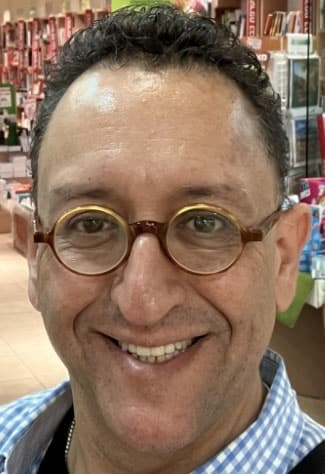Given the atmosphere in the Middle East today, it is hard to believe that just seven years ago, on Nov. 6, 1995, a Jewish funeral took place where the deceased was surrounded and eulogized by Jews and Arabs. Yes, this week marks the seventh anniversary of Israeli Prime Minister Yitzchak Rabin’s funeral. Rabin was publicly eulogized (in this order) by Israeli President Ezer Weizman, King Hussein of Jordan, acting Prime Minister Shimon Peres and Egyptian President Hosni Mubarak. A Jew, followed by an Arab, followed by a Jew, followed by an Arab, all standing together at one graveside in Israel, eulogizing one Jewish leader. Children born that year in the Middle East probably have a hard time understanding how such an integrated funeral was really possible, given the Middle East they have witnessed since they were born.
Was Rabin’s funeral, which brought together Jews and Arabs for one brief moment, the first of its nature in the history of the Middle East?
At the end of this week’s Torah portion, Hayei Sarah, the Torah describes the death and burial of the first biblical patriarch, Abraham. A "father of a multitude of nations," Abraham, indeed, fathered two sons, Isaac and Ishmael, whose offspring were unfortunately destined to struggle with one another for thousands of years. Having one common father in Abraham, each son’s offspring were poised to become "great nations." The Jewish people trace their lineage through Isaac, for God told Abraham "it is through Isaac that offspring shall be continued for you." The Arabs, and later the Muslims, trace their heritage to Ishmael, of whom God said to Abraham, "I will make a nation of him, too, for he is your seed." Each son was destined to be a leader of his people.
After growing up together briefly, the two half brothers were separated: Isaac’s family going one way and Ishmael and his mother, Hagar, going in another direction. They were separated from one another for some 70 years. During that time, according to the Midrash, Isaac actually had gone to visit Hagar. We do not really know the purpose of the visit, but perhaps it was Isaac’s overture at reconciliation between the half brothers.
Then Abraham dies. "And Abraham was gathered to his kin. His sons Isaac and Ishmael buried him in the Cave of Machpelah." The Talmud describes Ishmael’s attendance at his father’s funeral as an act of teshuvah. To do teshuvah means to return. Ishmael returned to his father and to his half brother, Isaac. Was Ishmael’s teshuvah a response to his Isaac’s earlier visit to his home? We will never know.
All we know is that Isaac and Ishmael, Jew and Arab, stood together at their father’s graveside, tending to Abraham’s burial needs together, each probably having delivered moving eulogies for all of "Abraham’s kin" to hear at the funeral.
It is an unfortunate fact of history that the momentum of Isaac and Ishmael standing together at their father’s graveside was not carried into the future of their respective people’s history.
Similarly, it is unfortunate that when a funeral similar to Abraham’s took place just seven years ago, the momentum of that event was not carried forward equally by both sides beyond Rabin’s graveside.























 More news and opinions than at a Shabbat dinner, right in your inbox.
More news and opinions than at a Shabbat dinner, right in your inbox.